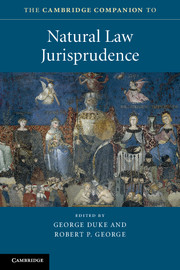Movable Goods and Immovable Property. Gender, Law and
Material Culture in Early Modern Europe (1450‒1850)
9th Conference of the European network “Gender
Differences in the History of European Legal Cultures”
German Historical Institute London, 19-21 July 2018
Conveners: Annette Cremer (Gießen), Hannes Ziegler
(London)
(image source: HU Berlin)
The history of material cultures offers important new
ways of studying the significance of gender differences in the history of legal
cultures by exploring new relationships between gender, law and material
culture. Material and immaterial possession informs the self-image of
individuals and societies, dynasties and families. A threefold scheme of legal
distinction differentiates between usufruct (1), possession (2), and property (3).
Yet these relationships between individuals and objects are not only relevant to
civil law, but correspond to political regimes. While usufruct, possession and
property thus correspond to different forms of authority and society, they also
have a bearing on gender relations on different levels of society. Usually,
these gendered aspects of material culture are the products of traditional
proximities between certain areas of activity and related groups of objects.
Communities in early modern Europe can thus be said to have a gendered and
often legally sanctioned relationship to the material world and the world of
objects.
Our assumption is that this situation led to social
rivalries and gender-informed conflicts between individual members of societies
regarding usufruct, possession, and property. The action of taking possession
of something is thus more than just a way of achieving material security, but a
form of social practice and a way of self-assertion: in order to gain social
status, as a way of accumulating social capital or broadening one’s personal or
dynastic room for manoeuvre. In this respect, the single most important event
is the distribution of goods in generational succession. Despite their chronologically
wide applicability, we would like to explore these questions with respect to early
modern history.
The starting point for our conference is objects and
groups of objects, that is to say, mobile and immobile resources, and their relationships
with gender, structures of power, estate orders, customs and legal norms.
Perspectives from social and legal sciences will thus be combined with
approaches from material culture studies. Our basic assumption is that ways and
forms of usufruct, possession and property regarding certain objects inform the
self-image and the prospects of individuals and families. What changes and
dynamics can be observed in relation to the correlations between gender and
objects? What differences occur between different forms of societies?
The network „Gender Differences in the History of
European Legal Cultures“ operates in a diachronic and comparative way. We are
therefore looking for papers engaging with the relationships between objects,
gendered self-images and rights of ownership on the basis of textual, pictorial
and material sources in Europe between 1450 and 1850. Despite this emphasis on early
modern history, we also encourage proposals that highlight transitions from the
Middle Ages. Papers should engage with one or more of the following themes and
questions:
1.
How can the
distinction between movables and immovables be explained? On what experiences
and everyday considerations is it based?
2.
When does the
category of movables become relevant? Is the understanding of the house as
immovable based on its material aspects, e.g. fabrics?
3.
Does the gendered
coding of movables and immovables exist in different legal areas? How is the
attribution of gendered codes argued for?
4.
What are the
consequences of gendered attributions of objects and resources? Does the
distribution of resources lead to specific hazards or profits?
5.
What objects are
especially disputed? We are looking for examples of individuals trying to take
possession of mobile and immobile, material and immaterial resources.
6.
Can tensions be
discerned between the aims and interests of households and family units and the
superior interests of the manorial system, the economies of cities and states,
or the public weal?
7.
Does the
distinction between mobiles and immobiles extend beyond legal norms? How is it
handled in Common or Roman Law?
8.
What are the strategies
of testators for distributing their property? How binding were marriage
contracts and last wills in the case of succession?
9.
What institutions
are resorted to in case of conflicts?
10. How is the value of mobiles and immobiles assessed?
How relevant are market values, auctions and valuers?
11. What is the role of gender, marital status, age,
social standing, and religious confession for pursuing one’s interest and the
chances of success in the case of judicial conflicts?
12. What is the influence of the distribution of wealth on
power relations within the family?
13. And finally: what is the shape of households that have
been reorganised by gavelkind, single heir rule and other mechanisms of
distribution? In other words: how is the redistribution of goods handled within
households?
Keynotes will be presented by:
Amy Erickson (Cambridge) and Margareth Lanzinger
(Wien)
Please send your proposals for papers (appr. 1 page/300
words) together with a short academic CV by 15 October 2017 to:
and











